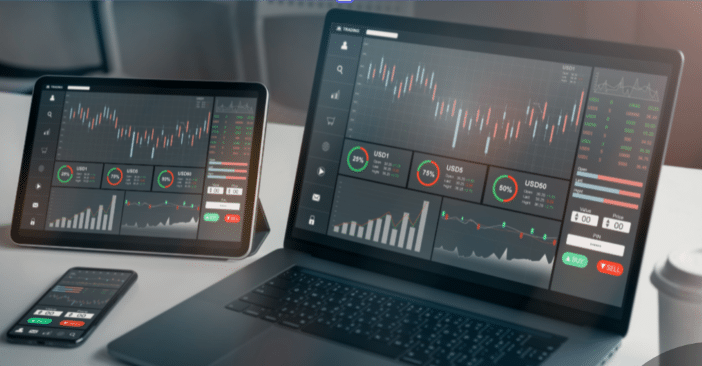Best Zero Spread Brokers 2026
Pros and Cons
- Lower trading costs: Zero spread brokers offer competitive pricing that minimizes trading costs, allowing market participants to maximize their profit potential.
- Ideal for scalping and day trading: These brokers are perfect for scalpers and day traders who execute multiple trades in a short period, as spreads do not eat into their profits.
- Transparent pricing: With zero spreads, traders get more transparency in pricing, knowing that the cost is in the commission rather than hidden in spreads.
- Suitable for all trading strategies: Whether you’re using a high-frequency trading strategy or longer-term investing, zero spread brokers can provide a flexible trading environment.
- Advanced trading platforms: Many minimal spread brokers offer sophisticated platforms with advanced charting tools, technical analysis, and fast execution speeds.
- Commission fees: While spreads are zero, these brokers typically charge a commission per trade, which can add up for high-frequency traders.
- Not always zero spreads: In volatile market conditions, some brokers may still have variable spreads.
- Limited broker choices: The number of brokers offering genuine zero spread accounts is limited, and finding a reputable one can be challenging.
- Potential conflicts of interest: Some brokers may engage in practices that could potentially disadvantage traders to compensate for the absence of spreads.
Introduction to zero spread brokers
In the world of online trading, choosing the right broker can make a significant difference in a trader’s profitability.
Among the various types of brokers available, zero spread brokers have gained considerable attention.
These brokers offer trading accounts where the spread, or the difference between the bid and ask price of a trading instrument, is essentially zero.
Instead of earning revenue from the spread, these brokers charge a fixed commission per trade, providing a more transparent cost structure.
Minimal spread brokers are particularly popular among scalpers, high-frequency traders, and day traders who execute numerous trades in a short period.
For these individuals, even a small spread can significantly impact profitability.
By eliminating the spread, tight spread brokers allow anybody to see the actual market price without any hidden costs, making it easier to calculate profits and losses.
However, zero spread accounts are not without their challenges and considerations.
This comprehensive guide explores the world of raw spread brokers, their benefits, and drawbacks, the key factors to consider when choosing one, and a detailed comparison of some of the most popular brokers available today.
Whether you’re a seasoned trader or just starting, understanding the ins and outs can help you make an informed decision that aligns with your trading goals.

How do zero spread brokers operate?
To fully appreciate the value of zero spread firms, it’s essential to understand how they differ from traditional brokers.
In a conventional brokerage setup, the spread covers the broker’s operational expenses and provides a primary source of income.
By eliminating this spread, minimal spread brokers shift their revenue model to a commission-based structure.
Key operational features
- No spread costs: The most significant advantage is the absence of spread costs, which makes it easier to determine the exact entry and exit points.
- Commission-based revenue: Zero spread brokers typically charge a fixed commission for every trade. The commission structure can vary widely between companies, so traders need to evaluate this cost carefully.
- Execution speed and quality: These brokers often offer high-speed execution and better price transparency. However, the speed and quality of execution may depend on the broker’s infrastructure and technology.
Benefits of zero spread brokers
Choosing a zero spread broker comes with several advantages that cater to different types of users:
Transparent pricing
With zero spread accounts, the transparency in pricing helps clients understand their costs upfront.
There are no hidden markups, and traders pay a flat fee per trade, which can be particularly advantageous in volatile markets where spreads can widen unexpectedly.
Lower trading costs
For users executing numerous transactions, such as scalpers or day traders, no spread accounts can result in significant cost savings.
Without the spread cost, even the smallest price movement can be profitable, provided it covers the commission charged.
Enhanced control over trades
Zero spread accounts provide a more accurate representation of market conditions, as the prices reflect the actual bid and ask rates.
This can give investors more control over their trading strategies, allowing for tighter stop-loss and take-profit margins.
Suitable for all trading strategies
While they are ideal for scalping and high-frequency trading, they can also benefit swing traders and position traders.
The absence of spread costs means that market participants retain more control over their trades and can minimize costs, even when holding positions for longer periods.
Challenges of zero spread brokerages
Despite their many benefits, they are not without drawbacks:
- Commission fees: While there are no spreads, the commission per trade can add up, especially for high-frequency traders.
- Not always zero spreads: In volatile market conditions, some zero spread brokers may still have variable spreads.
- Limited broker choices: The number of firms offering genuine tight spread accounts is limited, and finding a reputable one can be challenging.
- Potential conflicts of interest: Some companies may engage in practices that could potentially disadvantage traders to compensate for the absence of spreads.
Top firms brokers to consider
There are several firms that provide zero spread accounts, each with unique features, regulations, and trading conditions.
Here is an overview of some well-known tight spread brokers:
IC Markets
IC Markets is a reputable broker known for its low spreads and high execution speed.
It offers no spread accounts, with commissions as low as $3.50 per lot per side.
The broker provides access to a range of financial instruments, including forex, commodities, indices, and cryptocurrencies.
Regulated by the Australian Securities and Investments Commission (ASIC), IC Markets has a solid reputation for reliability and transparency.
Exness
Exness is another well-known broker offering raw spread accounts.
It provides flexible leverage options and supports a wide range of trading platforms, including MetaTrader 4 and MetaTrader 5.
Exness is regulated by multiple authorities, including the Financial Conduct Authority (FCA) in the UK, ensuring a secure trading environment for its clients.
Pepperstone
Pepperstone offers razor-sharp pricing with no spread accounts.
It has a robust infrastructure that provides fast execution speeds, which is crucial for scalpers and day traders.
The broker is regulated by the FCA and the Australian Securities and Investments Commission (ASIC), ensuring a high level of safety and transparency.
FBS
FBS is a popular broker offering zero spread accounts, especially favored by beginners due to its user-friendly platform and extensive educational resources.
It provides competitive commission rates and allows for trading a wide range of assets, including forex, commodities, and stocks.
FBS is regulated by the International Financial Services Commission (IFSC) and the Cyprus Securities and Exchange Commission (CySEC).
Tickmill
Tickmill is known for its low-cost trading environment, offering zero spread accounts with a commission of just $2 per side per lot.
The broker supports both MetaTrader 4 and 5 and is regulated by the FCA, CySEC, and the Seychelles Financial Services Authority (FSA).
How to choose the best zero spread broker
Selecting the right zero spread broker involves considering several factors:
Regulatory compliance
Ensure the broker is regulated by a reputable authority such as the FCA, CySEC, ASIC, or other respected regulatory bodies.
This provides a layer of security and protection for clients.
Commission structure
Review the commission rates charged by the broker.
While zero spreads can save on costs, high commission rates can offset these savings, particularly for frequent traders.
Trading platform
Evaluate the trading platform offered by the broker.
Look for platforms that provide a user-friendly interface, fast execution speeds, and a range of technical analysis tools.
Popular options include MetaTrader 4, MetaTrader 5, and cTrader.
Range of instruments
Consider the variety of financial instruments available for trading.
A broker that offers a wide range of assets, such as forex, stocks, indices, commodities, and cryptocurrencies, provides more opportunities for diversification.
Customer support
Good support is vital for a seamless trading experience.
Inquire about companies with responsive customer service available through multiple channels like live chat, email, and phone.
Comparing brokers: A detailed overview
To help readers make informed decisions, here’s a comparison of some top zero spread brokers based on various factors:
| Broker | Minimum Deposit | Regulation | Platform | Commission per Lot |
| IC Markets | $200 | ASIC, CySEC | MetaTrader 4/5, cTrader | $3.50 per side |
| Exness | $1 | FCA, CySEC | MetaTrader 4/5 | $3.50 per side |
| Pepperstone | $200 | FCA, ASIC | MT4 & MT5, cTrader | $3.50 per side |
| FBS | $1 | IFSC, CySEC | MT4 & MT5 | $6 per side |
| Tickmill | $100 | FCA, CySEC, FSA | MT4 & MT5 | $2 per side |
Understanding the commission structures
The commission is a crucial factor when choosing a zero spread broker.
Commissions can vary widely between brokerages and depend on factors like the trading volume, account type, and the instruments being traded.
Flat commission per lot
Some brokers, like IC Markets and Pepperstone, charge a flat commission per lot traded.
This is straightforward and easy to calculate, which is beneficial for those who value predictability in their trading costs.
Tiered commission structure
Other firms may offer a tiered commission structure, where the rate decreases with higher trading volumes.
This can be advantageous for institutional or high-volume traders looking to reduce costs.
Factors influencing spread costs and commissions
While no spread accounts eliminate the spread, there are still costs to consider:
Market volatility
During periods of high volatility, spreads may still appear even with zero spread accounts.
Investors should be prepared for potential changes in market conditions.
Account type and trading volume
Some brokers offer different account types with varying commission structures.
For example, a VIP account may offer lower commissions than a standard account but require a higher minimum deposit or trading volume.
Using raw spread accounts for different trading styles
Zero spread accounts are particularly suited for specific trading styles:
Scalping
Scalping involves making numerous trades in a short period to take advantage of small price movements.
Zero spread accounts are ideal for scalpers as they minimize trading costs.
Day trading
Day traders, who open and close trades within a single day, also benefit from raw spread accounts.
These investors can reduce their costs by not paying spreads, allowing them to make profits on even the smallest price movements.
Swing trading
While swing traders hold positions longer than scalpers or day traders, they can still benefit from zero spread accounts by avoiding wide spreads that could erode potential profits.
Best practices for trading
To maximize the benefits of trading with zero spread brokers, people should consider the following best practices:
Monitoring commission costs
Keep a close eye on commission fees and ensure they do not outweigh the savings from zero spreads.
Evaluate if the trading volume justifies the cost.
Staying updated on market conditions
Zero spreads are most beneficial when the market is stable.
Investors should be aware of news events or economic releases that could cause volatility and impact trading conditions.
Using stop-loss orders
Implementing stop-loss orders can help protect against unexpected market movements, especially in a zero spread trading environment where price changes can be swift.
Regularly reviewing broker terms
Broker terms and conditions, including commission rates and trading conditions, can change.
Regularly reviewing these terms ensures that users are always aware of any updates that might affect their trading strategy.
Comparison of market-leading zero spread brokers
| Broker | Commission per Lot | Execution Speed | Regulation | Account Types | Spreads | Additional Features |
|---|---|---|---|---|---|---|
| IC Markets | $3.50 per side | Very Fast | ASIC, CySEC | Standard, Raw Spread | From 0.0 pips | Advanced Trading Tools, Low Latency |
| Exness | $3.50 per side | Fast | FCA, CySEC | Standard, Professional | From 0.0 pips | Free VPS, Multi-currency Accounts |
| Pepperstone | $3.50 per side | Very Fast | FCA, ASIC | Standard, Razor | From 0.0 pips | Smart Trader Tools, Social Trading |
| Tickmill | $2 per side | Fast | FCA, CySEC, FSA | Classic, Pro, VIP | From 0.0 pips | Risk-Free Demo Account, Fixed Spreads |
| FBS | $6 per side | Fast | IFSC, CySEC | Standard, Cent, Zero Spread | From 0.0 pips | Promotions, Educational Resources |
| XM | $5 per side | Fast | CySEC, ASIC | Micro, Standard, Ultra Low | From 0.0 pips | Research Tools, Free Seminars |
| RoboForex | $4 per side | Moderate | IFSC | Pro, ProCent, ECN | From 0.0 pips | Copy Trading, Contests |
| FXOpen | $3.50 per side | Moderate | ASIC, FCA | STP, ECN, Crypto | From 0.0 pips | Crypto Accounts, PAMM Services |
| LiteFinance | $5 per side | Fast | IFSC | Classic, ECN | From 0.0 pips | Forex Analytics, Social Trading |
| eToro | No Commission | Moderate | FCA, CySEC, ASIC | Retail, Professional | Variable | Copy Trader, Crypto Wallet |
| Axi | $3.50 per side | Fast | ASIC, FCA | Standard, Pro | From 0.0 pips | PsyQuation, Autochartist |
| XTB | No Commission | Fast | FCA, CySEC | Basic, Standard, Pro | Variable | Trading Academy, Market Analysis |
| OctaFX | No Commission | Moderate | SVGFSA | Micro, ECN | Variable | Autochartist, Promotions |
| FXTM | $4 per side | Fast | FCA, CySEC | Standard, ECN, FXTM Pro | From 0.0 pips | Market Insights, Local Deposits |
| HYCM | $4 per side | Fast | FCA, CySEC, CIMA | Fixed, Classic, Raw | From 0.0 pips | Market Analysis, Webinars |
| FXCC | $2.50 per side | Fast | CySEC | Standard, ECN XL | From 0.0 pips | ECN Spreads, Free VPS |
| Naga | No Commission | Moderate | CySEC | Starter, Advanced, VIP | Variable | Social Trading, Free Academy |
| EasyMarkets | No Commission | Moderate | CySEC, ASIC | Standard, Premium, VIP | Fixed | Deal Cancellation, Free Guaranteed Stops |
| Admirals | $3 per side | Fast | FCA, ASIC, CySEC | Trade.MT4, Zero.MT4 | From 0.0 pips | Volatility Protection, Market Analysis |
| GMI Markets | $3 per side | Fast | FCA, VFSCA | Standard, ECN | From 0.0 pips | Multi-Asset Trading, Tight Spreads |
Conclusion
Zero spread brokers offer a unique trading environment that can be highly advantageous for certain types of users, particularly those looking to reduce trading costs and gain more transparency in their trades.
However, it’s essential to carefully evaluate each broker based on regulatory compliance, commission structures, trading platforms, and customer support.
By understanding the intricacies of zero spread accounts and selecting the right broker, traders can create a cost-effective and strategic trading plan tailored to their individual needs.
Whether one is a scalper, day trader, or swing trader, tight spread brokers provide opportunities for a more transparent and potentially more profitable trading experience.
Frequently Asked Questions
What is a zero spread broker?
A zero spread broker offers trading accounts where the spread, which is the difference between the bid and ask price, is essentially zero. These firms typically charge a commission per trade instead.
Are they better for scalping?
Yes, zero spread brokers are generally better for scalping because they reduce the cost of entering and exiting trades frequently.
How do raw spread brokers make money?
They make money by charging a commission on each trade rather than earning from the spread.
While there are no hidden costs related to spreads, traders should be aware of other charges like commissions, withdrawal fees, and overnight swap fees.
Can beginners use zero spread brokers?
Yes, beginners can use them. However, they should consider the commission fees and ensure that their trading volume justifies the costs.
Are they regulated?
Reputable raw spread firms are regulated by financial authorities like the FCA, ASIC, or CySEC. Always check a broker's regulatory status before trading.
Do raw spread accounts have restrictions?
Some raw spread accounts may have restrictions, such as minimum deposit requirements or specific trading volume conditions.
User Reviews
Resources
- Forex Factory debate about Zero Spreads Brokers
- Spreads in Finance: The Multiple Meanings in Trading Explained
Disclaimer:The information provided on this site should not be distributed or used by any individual in any country or jurisdiction where such distribution would violate local laws or regulations.
Last updated: February 27, 2026




